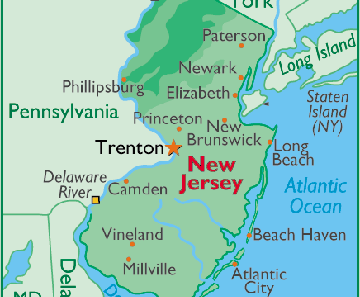Can we save the Earth from climate change? This question often elicits a myriad of responses, some hopeful and others steeped in cynicism. As we stand on the precipice of environmental calamity, one cannot help but wonder: will humanity rise to the occasion, or will we succumb to inertia, lulled by the comfortable embrace of ignorance? The road ahead is fraught with challenges, but it is also paved with opportunities for transformation. Addressing climate change demands not only awareness but action, and our trajectory hinges on our collective resolve.
The first step in this arduous journey is the acknowledgment of the undeniable science behind climate change. The Intergovernmental Panel on Climate Change (IPCC) unequivocally states that human activities, particularly the burning of fossil fuels, are primary drivers of global warming. Carbon dioxide and other greenhouse gases are accumulating in the atmosphere at alarming rates, leading to unprecedented temperature rises. The implications are severe: melting glaciers, rising sea levels, catastrophic weather events, and disruptions to global ecosystems. Ignoring these realities is not an option; a paradigm shift is imperative.
However, recognizing the crisis is only the beginning; the question remains, what can be done? Enter the realm of carbon capture and storage technology, which presents an intriguing yet contentious avenue for innovation. This technology aims to trap carbon dioxide emissions at their source, preventing them from reaching the atmosphere. Proponents argue that it is a vital piece in the puzzle of decarbonization, and while skeptics raise valid concerns regarding its efficacy and potential pitfalls, it is clear that investing in research and development is crucial. If we cannot reduce emissions adequately, can we, instead, mitigate their impact? Exploring alternative energy sources may also offer a semblance of salvation. Moving away from fossil fuels to renewable energy such as solar, wind, and hydropower could lead to a substantial reduction in greenhouse gas emissions. The advancements in renewable technologies have already shown that they are not only feasible but increasingly cost-effective.
Transitioning to renewables is not merely a choice; it is an imperative that should be embraced by governments and businesses alike. In fact, a comprehensive energy policy that prioritizes sustainability over short-term economic gains could transform our energy landscape. Nevertheless, this shift encounters obstacles. The political and economic system is often resistant to systemic change, especially when entrenched interests hold sway. Yet history demonstrates that transformative movements emerge from the grassroots level. Civic engagement and activism can spur policy changes that reshape energy paradigms. One wonders: can coordinated efforts within communities catalyze local policies that prioritize the environment?
We must also consider the role of education in this existential battle. Raising awareness and fostering environmental literacy among individuals, especially the youth, is paramount. An informed populace is a powerful force for change; it can drive policy reforms, compel corporations to adopt sustainable practices, and inspire individuals to reduce their carbon footprint. Integrating environmental studies into educational curricula can nurture a generation that is not only aware of climate challenges but is also equipped with the tools to address them. The questions remain: can educational institutions embrace this responsibility? Will society value ecological knowledge as much as it does technological prowess?
Moreover, the matter of biodiversity cannot be overlooked. Ecosystems around the globe are under siege, and their degradation exacerbates climate change. Deforestation, habitat loss, and pollution lead to a cascading effect that endangers myriad species while undermining natural systems that regulate climate. Protecting biodiversity serves not just an ethical endeavor but is also a strategic imperative. Initiatives that promote conservation and restoration of natural habitats are essential as they bolster resilience against climate extremes. Is the preservation of the natural world a lost cause? Or can concerted efforts to restore and rehabilitate ecosystems serve as a bulwark against climate change?
Yet, with all these strategies in our arsenal, a fundamental question persists: can we shift the cultural narrative around climate change? The prevailing attitude often tends to belittle the significance of the individual’s contribution to this global crisis. However, every action—no matter how minute—has the potential to create ripples of change. Encouraging sustainable lifestyles through community programs, reducing waste, and embracing circular economies can shift paradigms and galvanize collective action. The cultural evolution towards sustainability requires a revamping of values. Can societal norms evolve swiftly enough to rescue our planet?
Ultimately, saving Earth from climate change requires a multifaceted approach that encompasses technology, policy reform, education, and individual action. It demands collaborative resolve across nations, disciplines, and communities. The journey is long and fraught with challenges, but the question isn’t merely whether we can save the Earth—it’s whether we will muster the courage to act decisively. The urgency of the moment cannot be overstated, and the ramifications of inaction are dire. Therefore, as stewards of this planet, it is our duty to engage earnestly in discussions, initiatives, and strategies that unite us in our pursuit of a sustainable future.
In this age of unprecedented environmental challenges, let us not yield to despair. Instead, let us ignite the fire of determination within ourselves and those around us. The time to act is now. The road ahead may be steep, but the possibilities for redemption and regeneration abound. As we navigate this complex terrain, one must ask: are we ready to take the leap?








